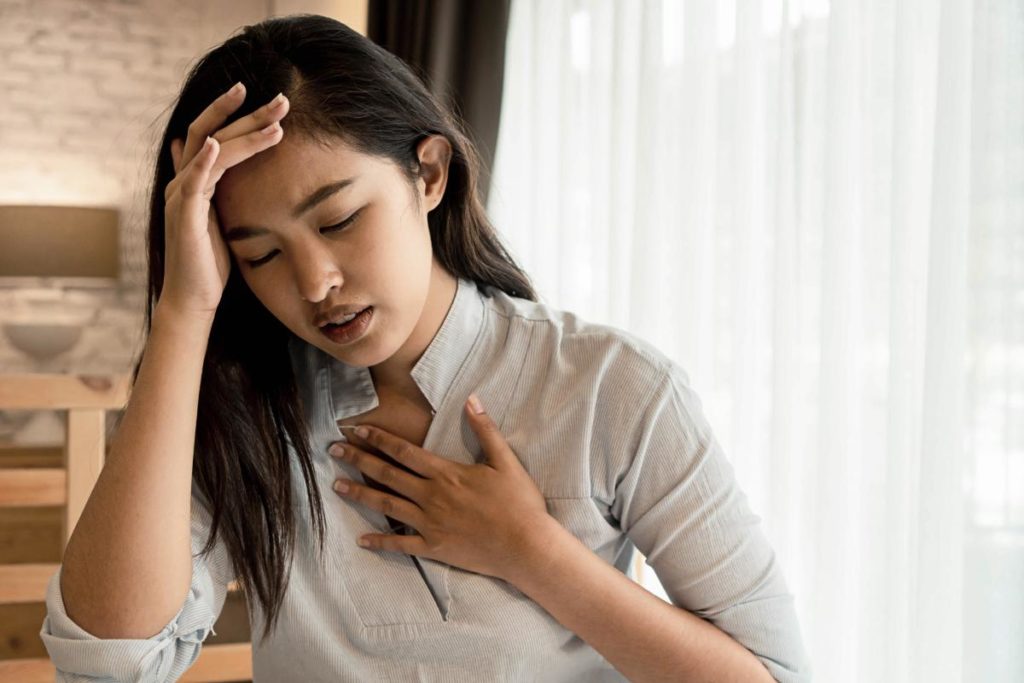Fentanyl, a powerful synthetic opioid, has been linked to many tragic overdoses. Because of fentanyl’s strength, a single pill can lead to a deadly overdose. An opioid addiction treatment program can save lives by helping people overcome fentanyl abuse and heal their bodies and minds. However, for people who are actively using fentanyl, the danger of overdose is always present.
How Fentanyl Contributes to Opioid Abuse
Fentanyl is a synthetic painkiller; it doesn’t occur in nature, but it’s manufactured in a lab. Because of its chemical makeup, fentanyl is 50 to 100 times stronger than morphine, another extremely powerful opioid. Doctors only prescribe fentanyl for severe and chronic pain, like advanced cancer or surgery recovery, and they usually reserve it for people who can’t get pain relief from other drugs.
Like other opioids, fentanyl binds to receptors in the brain that control pain and emotions. A fentanyl dose can block pain receptors and create temporary positive sensations. These effects may keep people returning for more doses and can lead to opioid abuse quickly.
Another danger of fentanyl is that if opioids are illegally obtained (from someone dealing drugs on the street, rather than from a prescription), they may be mixed with fentanyl to create a more potent “high.” People who take other drugs like heroin, cocaine, and meth may not be aware they’re taking a drug mixed with fentanyl. As a result, the dose may be much stronger than their body can handle, leading to an accidental overdose.
The illegally used fentanyl most often associated with recent overdoses is made in labs.
Some drug dealers mix fentanyl with other drugs, such as heroin, cocaine, methamphetamine, and MDMA. This is because it takes very little to produce a high with fentanyl, making it a cheaper option. This is especially risky when people taking drugs don’t realize they might contain
Recognizing the Fentanyl Overdose Triad of Symptoms
A fentanyl overdose usually happens very quickly after someone takes the drug. They may show overdose signs within a matter of seconds or minutes.
Three symptoms appear so frequently in opioid overdoses that medical professionals call them the “opioid overdose triad.” If someone exhibits the three symptoms, they will likely have overdosed on fentanyl or another opioid.
- Pinpoint pupils, or small, dilated pupils that look like the points of a pin. Check a person’s eyes for this symptom.
- Shallow or slow breathing is also known as respiratory depression.
- Unconsciousness or decreased consciousness. A person with this symptom will be unresponsive and unable to wake up.
Once someone shows these signs of opioid abuse, getting them to urgent care or an emergency room as soon as possible is important.
Other Signs of Fentanyl Overdose
Besides the top three symptoms, here are other warning signs that someone may have overdosed on fentanyl.
- Nausea and vomiting
- Cold, clammy skin
- Blue lips or blue fingernails
- Dizziness
- Drowsiness
- A low heart rate
- Choking sounds or snore-like gurgling
- Odd behavior or confusion
- Stiffening or limp body
Someone showing these symptoms also needs immediate medical attention. A fentanyl overdose can be reversed, but acting quickly is important. After getting medical help, recovery is the next step.
Healing and Hope at Footprints Beachside Recovery
A professional recovery program can save lives. If you or someone you care about uses fentanyl or other opioids, our medical staff can help you reverse course and pursue recovery before an overdose happens. Footprints Beachside Recovery will be there for you from the initial stages of supervised detox to therapy, sober living, and alumni programs. Our beautiful Florida location and a broad continuum of care helps make Footprints Beachside Recovery an ideal place to overcome addiction.
Our dedicated staff members serve only 15 clients at a time, so we have the resources to prioritize your treatment and well-being. Intensive outpatient programs and sober living houses give clients space to continue daily responsibilities while doing important recovery work. Our day and night treatment program strikes a balance between inpatient and outpatient models for clients who want additional structure.
Recovery from opioid abuse is possible. Call 727-954-3908 to find out how we can help you or someone you love.



